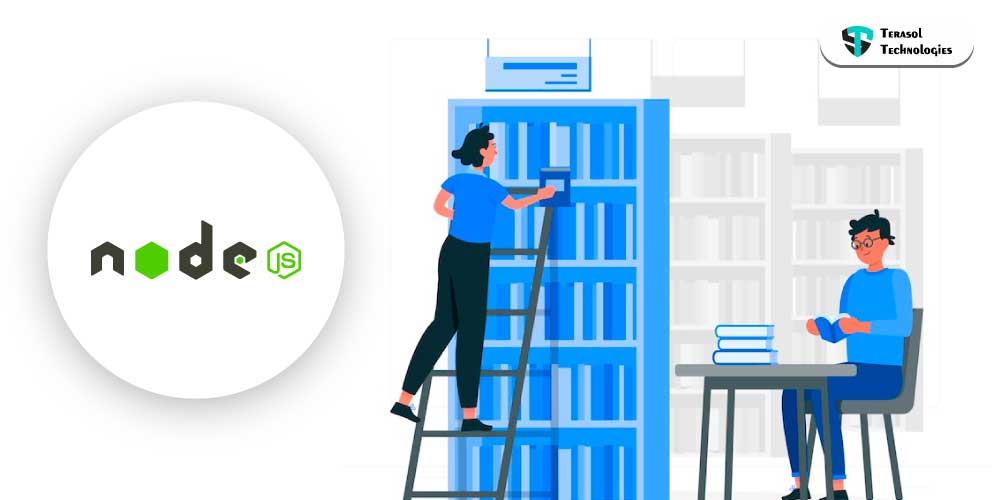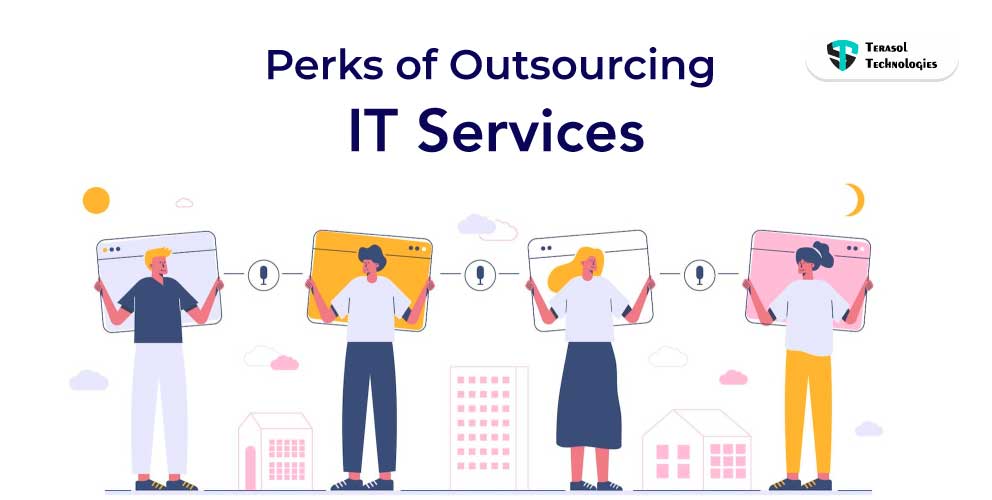Natural Language Processing And its 8 Benefits in E-commerce
In today's modern world, which is driven by technology, there is an oversupply of data available, and it's rising at a rapid rate. Every day, we are bombarded with massive amounts of text and audio data.
How can we organize this data and decide what to do with it?
(think, think!)
Natural language processing, or NLP, is the answer.
Natural language processing is an attempt to add a human touch to the online experience in today's technology-driven society. It enables your computer allocations to comprehend human language in its natural form.
Data science solutions can make a significant difference in a variety of fields. Such technologies as natural language processing (NLP) can break down a text into its constituent parts, allowing it to grasp the context and intent. Based on the NLP results, the machine can then pick which command to execute.
To ensure that this information appears when it is searched for, it must be sorted into categories. It is critical, particularly for eCommerce businesses and retailers.
Natural Language Processing (NLP) was one of the first applications in the e-Commerce and retail sectors. It began with chatbots and conversational interfaces and progressed to the automation of corporate operations and the improvement of the customer experience.
While everyone joining the march might help progress, it can also lead to misunderstandings. Many people have embraced NLP because of its potential. But they have neglected the complexity of human languages and the difficulty of working with them.
Only by setting reasonable expectations will the true potential of this technology be realized. Let's get real about natural language processing and discuss what it means in the context of eCommerce – it has a lot to offer.
What Is Natural Language Processing (NLP)?

Now that we've gotten beyond the pseudoscience, we can get down to business. NLP is the study of how computers understand the structure and meaning of human languages, allowing humans to communicate with computers using natural phrases.
Isn't it simple?
Perhaps for an AI researcher!
In reality, allowing machines and people to interact is far from simple. Yes, your "Hey Siri" or "Alexa play rock songs" talks are more complicated than you realize.
We use natural language to communicate with other humans daily because of our fundamental ability to comprehend, process, and employ words. To communicate, we employ a variety of languages such as English and French.
However, these languages are not the same as formal languages like logical notations or computer languages like Java, LISP, and C++. Interactions between computer and human (natural) languages are thus difficult.
Thus, Natural language processing is a multidisciplinary method that combines machine learning, statistics, and linguistics to enable these meaningful interactions.
But, Why NLP in e-commerce?
Recognizing and analyzing the needs and behaviors of their customers is critical for retail and e-Commerce firms. Companies use social media platforms to listen to what their potential customers say online to create a better customer experience. This enables them to comprehend the words that a user may use to purchase a certain item. It may appear simple, but it takes a lot of time and effort on the part of people, thus employing machine learning and AI is the ideal way to go.
For humans, this is simple since we can readily adjust to the new communication rules. But it's not the same for computers; it's a tremendously difficult and computationally expensive operation for them.
Two of these subfields need to be distinguished: Natural Language Understanding (NLU) and Natural Language Generation (NLG).
In e-commerce, Natural language understanding refers to the process of reading and interpreting language (translating text). Whereas NLG refers to the process of creating natural language.
The site search is powered by NLU. Users expect to be understood and given the information they require when they talk or type in this manner. Chatbots, on the other hand, create language. They respond to the user, generate language, and are thereby controlled by NLG.

Handling Natural Language's Five Tricky Characteristics
According to Gartner 2019, Natural language product search wasn't a driving element in the adoption of AI for eCommerce because of our unnatural search patterns.
Google's search, Apple's voice search Siri, and Facebook's Graph Search are just a few of the most well-known examples, and they're all raising the bar for eCommerce players.
While most people speak without giving it much thought if at all, natural language is quite complicated and can be broken down into a variety of aspects. Five elements, in particular, must be considered for NLU to be truly effective in e-Commerce. Those are:
Natural Language Searches Are Innovative/ Creative:
As natural language searches grow more frequently, your search engine's ability to produce relevant results to novel and unpredictable questions will be expected, not commended.
Natural Languages Are Structured:
Understanding the role and weight that different terms play in different sorts of searches is the only way to unearth their true meaning in the context of eCommerce search. NLP is founded on the idea that words have meaning, and it can help identify which words are important to consider by segmenting words and weighting keywords based on their importance.
Natural Languages Are Inferential:
In eCommerce, the ability to understand synonyms is especially crucial. There will always be a disconnect between what a customer calls a product and how it is described in metadata.
Natural Languages Are Ambiguous:
Natural languages are difficult to grasp because of two types of ambiguity: lexical and syntactic/semantic.
Words with the same spelling but different meanings are referred to as lexical ambiguity. Understanding polysemy might help you figure out what kind of user you're dealing with. Conjunctions, for example, might cause ambiguity in a sentence.
Natural Languages Are Context-Based:
There must be a means to tap into those contextual clues online to prevent clients from feeling irrelevant. That is to say, my definition of 'expensive' may differ from yours.
Benefits of NPL in E-commerce
Natural Language Processing allows machines to readily identify which phrases and terms are commonly used by humans when searching for a specific product. It aids in the personalization of searches for users who interact with the system via a search engine. We'll go through some of the most popular NLP applications in 2021, as well as how NLP may aid eCommerce businesses.
1. Understanding the intent of the User
One of the goals of online retailers is to improve the shopping experience of their clients. Product discovery (including search and category browsing) is the most important area for improvement because it can always assist buyers in finding products.
Typically, a company would provide a list of all probable outcomes based on their search query. However, it is possible to go above and beyond. Understanding clients' intentions and showing them what they're looking for would be a better outcome.
2. Recommendations for Smart Products
The majority of product recommendations are based on keywords. You will get exactly what you write in as a result. NLP, on the other hand, can take into account more variables, such as past search results and context. These criteria can aid in the refinement of search results.
It also aids merchants in keeping visitors interested by proposing appropriate items. It will reduce site abandonment and improve the number of purchases if you present products that are relevant to the customers' demands.
While this enhanced suggestion process yields excellent efficiency, it is not without its drawbacks. Data sparsity, the cold start problem, predictability, suggestions, and content inclusion are just a few of the challenges.
That is why having an effective and objective recommender system - which ultimately provides a robust foundation for e-commerce - is critical.
3. Semantic Search
It is a type of search that is based on semantics. When searching for things, users use normal language. Natural language is difficult for search engines to understand because it is unable to distinguish between product names and product descriptions. They've been fed a lot of unstructured and raw data to analyze, and with the help of strong algorithms, computers are rapidly becoming more and more efficient at interpreting a specific phrase in the context of the current situation.
4. The dynamics of customer service centers
Automation makes the process of changing call centers without the need for a human agent simple. AI systems and NPL can efficiently handle client interactions. Chatbots are being used by a growing number of businesses and organizations. They've established themselves as a valuable asset in their customer service department. It aided their clients in having a better overall experience.

That is why many businesses are turning to machine learning and natural language processing (NLP) to obtain accurate and useful consumer feedback. In the end, organizations rely on customer pleasure, therefore their feedback is valuable and can aid in business improvement.
Natural Language Processing is being used by businesses and organizations with the help of software development company to manage a large number of password reset and website issue queries. NLP agents can decipher the request and direct the person to the appropriate individual or department for additional assistance.
5. Sentiment Analysis
Sentiment analysis can provide information on what customers think. It's largely about people's feelings and thoughts about a particular product or service. With the development of artificial intelligence (AI) in computers, emotional responses, analysis, and findings are now classified as negative, positive, or neutral. It allows computers to interpret simple interactions more easily.
To gather feedback on their products, e-commerce employs social media for monitoring, consumer interviews, and reviews. However, it is not possible to collect all of the information that NLP can. It gives you a portion of it, but not all of it.
That is why they use NLP solutions to process massive amounts of textual data from emails, social media posts, conversations, blogs, and other sources. It is free of prejudice and detects even the tiniest shifts in client behavior.
6. Cost-Effectiveness
You must teach your entire crew on a new technology that has the potential to greatly improve business operations, and then you must pay thousands of dollars to have technology do the work for you. Why not use technology that includes intelligence and automation platforms that are programmed to have in-depth knowledge of the industry?
It is what makes NPL is cost-effective.
7. Extraction of text
Text extraction or information extraction is an NLP-based method that locates specified data in a text automatically. It can also extract keywords and specific aspects from a text, such as product serial numbers.
8. Spell Check, Autocorrect, and More
Word processors and text editing interfaces frequently include NLP-driven functions. NLP technology, on the other hand, has advanced beyond autocorrect and spell-check. The cutting-edge NPL-driven writing tools can detect grammar errors and make suggestions for improving your writing style. Overall, they enable quick, clear, and efficient communication, and it is critical in today's corporate world.
Wrapping Up
NLP is becoming increasingly important for online organizations due to the actionable insights it gives. These insights aid companies in making decisions that result in measurable results. All we have to do now is wait and see how AI develops of top web application development companies over the next few years. NLP will become increasingly vital for any online business in the future, and it will be difficult to conceive an online firm without it.
Do you require assistance with your eCommerce site or a conversational search? Get in touch with us.


